Hosepipe ban declared 'until WINTER' as reservoir levels drop to record low

GB NEWS

The ban follows drought conditions being declared in the region
Don't Miss
Most Read
Trending on GB News
A hosepipe ban affecting more than five million people has been declared as reservoir levels have dropped to record lows.
Yorkshire Water is imposing the restrictions following its driest spring on record, with the region receiving just 15cm of rainfall between February and June, less than half what is expected in an average year.
There has also been an increased water demand, leaving the region’s reservoirs just 55.8 per cent full, which is 26.1 per cent lower than they would normally be at this time of year.
The hosepipe ban will come into effect from Friday, July 11, and will prevent people from using hosepipes to complete tasks including cleaning their cars, watering their garden, filling domestic pools and cleaning their windows.
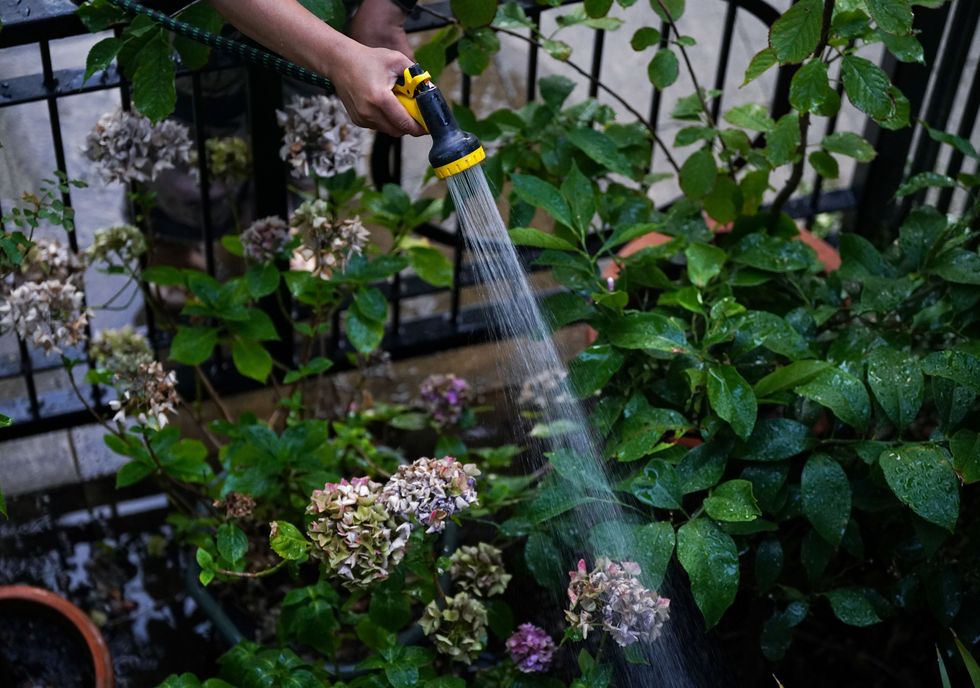
A hosepipe ban is set to be put in place affecting more than five million people in Yorkshire
| PA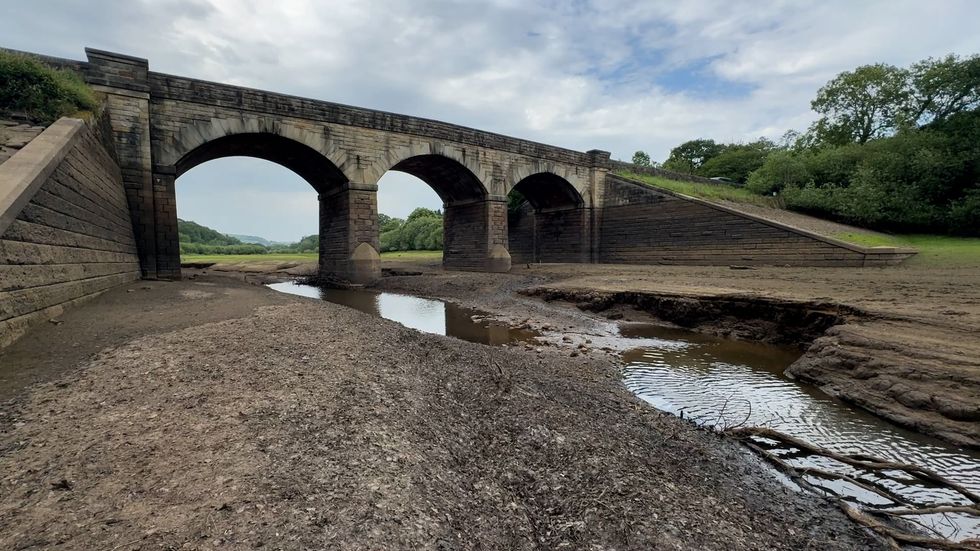
Yorkshire was moved to 'drought' status after the driest spring for 132 years
|PA
These activities can still be carried out using water from a bucket or watering can.
Businesses are allowed to use a hosepipe if it is directly related to its commercial purpose.
Yorkshire Water director of water, Dave Kaye, said the restrictions "could last into the winter months".
Kaye explained: "With more dry weather forecast in the coming weeks, it is likely our stocks will continue to fall, so we need to act now to maintain clean water supplies and long-term river health.
LATEST DEVELOPMENTS:
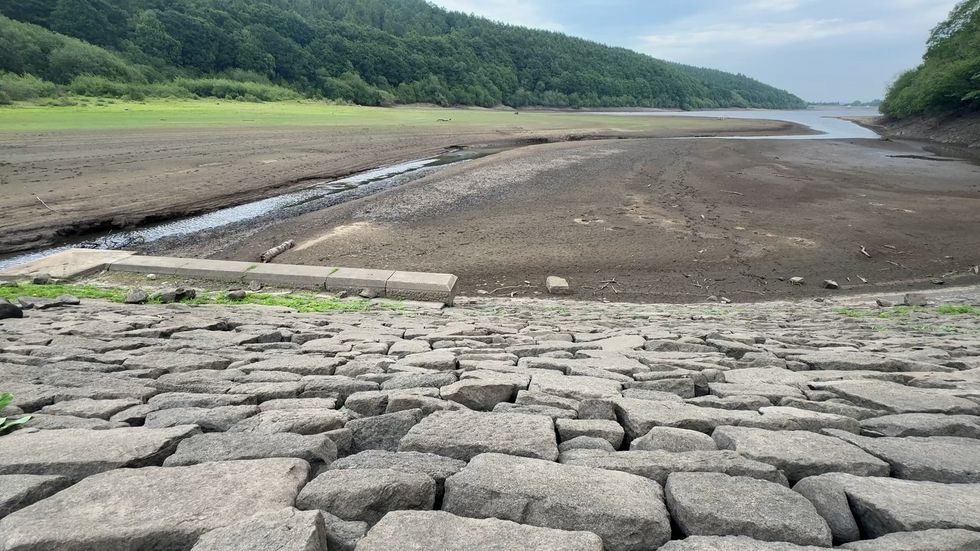
The drought was annoucned at the end of May
|PA
"Having restrictions in place also allows us to apply for drought permits from the Environment Agency (EA), which means we can abstract more water from our rivers and reduce compensation flows out of our reservoirs so that we can continue to provide the water our customers rely on us for.
"The restrictions will come into effect on July 11 and will be in place until the region has seen significant rainfall to bring reservoirs and groundwater stocks back to where they need to be.
"This may last into the winter months, but we will lift the usage restrictions as soon as we are able."
The hosepipe ban will affect all of the water company's five million customers.
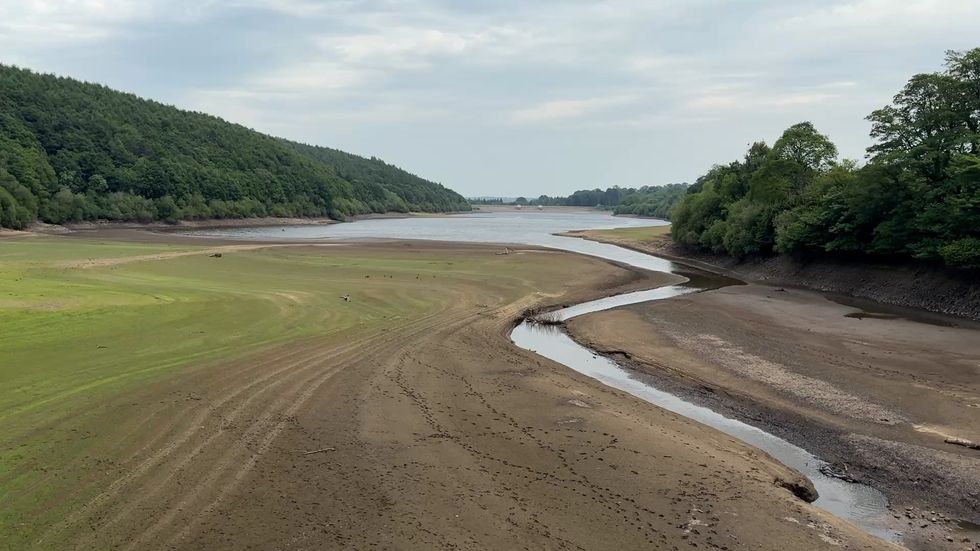
Lindley Reservoir in West Yorkshire pictured following the announcement of a drought in the region in June
|PA
It comes after Yorkshire officially entered drought status last month following its driest spring in 132 years.
The EA said the region had received 66 per cent of the long-term average May rainfall.
Speaking upon the announcement of the drought in June, Claire Barrow, Yorkshire Environment, Planning and Engagement Manager, said: "Our climate is changing, and we had 22 days of almost no recorded rainfall in May.
"While we have had some rain at the start of June, it has not been enough to reverse the impacts of the prolonged dry weather."
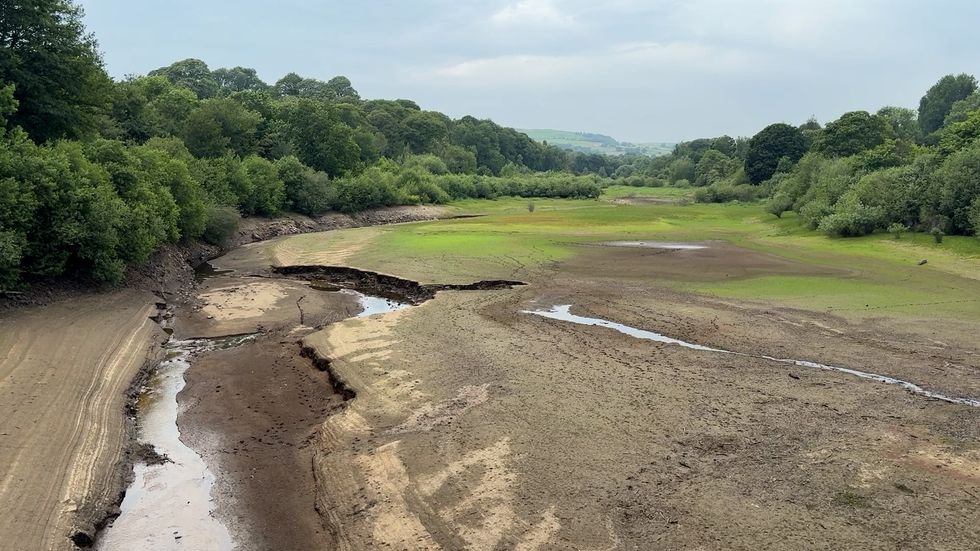
The EA said Yorkshire had received 66 per cent of the long-term average May rainfall
|PA
Across England, rainfall totals in almost half of hydrological areas - which are areas where water flows to a particular point, such as a river - were classed as below normal, including most of the north-east, the EA said.
A total of 15 hydrological areas had the driest March to May period since records began in 1871, including eight in north-east England, three in the south-east and four around the Welsh border in central and south-west England.
The UK experienced its sunniest April this year since records began in 1910, with 47 per cent more sunshine hours than the long-term meteorological average, according to the Met Office.
Weather records were also broken in June when England recorded its warmest June since 1884, new Met Office figures have revealed.










